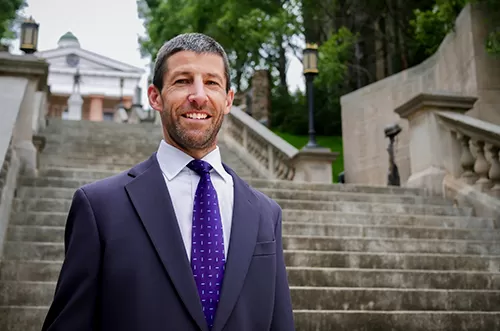Freemason St. Area Ass'n v. City of Norfolk, 103 Va. Cir. 244 (City of Norfolk Cir. Ct. Oct. 21, 2019)
A property was built in 1901 in the West Freemason Section of Norfolk, Virginia (the “Grandy House”). In 1977, the City of Norfolk (“City”) established the West Freemason Historic District (the “Historic District”) and the Grandy House contributed to the Historic District. In 2015, Dr. Mark S. Sinesi (“Sinesi”) purchased the Grandy House with the intent to renovate the Grandy House. Sinesi developed construction plans and expended funds in support of this effort. On December 16, 2016, an arsonist set the house on fire, damaging the porch and the interior. Due to the damage, the City issued multiple citations to Sinesi, which required that he make certain repairs or improvements to the Grandy House. Sinesi did not make the repairs or improvements. On June
18, 2018, based on a structural engineer’s February 7, 2018 letter, the City Building Commissioner deemed the Grandy House “structurally unsafe” pursuant to the Virginia Uniform Statewide Building Code (“USBC”) and recommended that the structure be immediately demolished. On August 9, 2018, the structural engineer produced a new evaluation and report (the “Report”), which concluded: (i) 60% of the roof was unsalvageable; (ii) 80% of the attic framing was unsalvageable; (iii) 80% of the second floor was unsalvageable; (iv) the first floor framing was in extremely poor condition; (v) the brick exterior walls were vulnerable and at risk of failure or collapse because of the removal of supporting structure elements. That same day, the City Building Commissioner forwarded a memorandum to the City Zoning Administrator declaring the Grandy House unsafe. On August 13, 2018, the Zoning Administrator notified the City and the Architectural Review Board (“ARB”) of the Grandy House condition and that the City Property Maintenance Official was notified to take all necessary actions to demolish the Grandy House. On August 14, 2018, the City issued Sinesi a Notice of Violation (the “Notice”), which found the Grandy House unsafe and uninhabitable and ordered the structure be repaired or demolished. Sinesi began the process of obtaining a demolition company to remove the structure.
On August 30, 2018, the Freemason Street Area Association, Inc. (“Freemason”) filed a Petition for Temporary Injunction against Sinesi. The Court initially granted a 14-day temporary injunction, but later denied the petition for a temporary injunction. Sinesi later demolished the Grandy House. Freemason and other homeowners in the Historic District (collectively, the “Plaintiffs”) filed complaints, alleging procedural due process violation, declaratory judgment that the City took a property interest without paying just compensation, a 42 USC § 1983 violation, and an equal protection violation. The City filed a demurrer. The Court sustained the City’s demurrers.
The Court found that the Plaintiffs did not adequately allege that they had a protective covenant or negative easement in the Grandy House. An easement gives the owner of one property a right over the property of another person, who is obliged to suffer, or refrain from doing something on his own property for the advantage of the former. Affirmative easements convey privileges on the part of one person (the ‘dominant tract’) to use the land of another (the ‘servient tract’) in a particular manner or for a particular purpose. Negative easements convey rights to demand that the owner of the servient tract refrain from certain otherwise permissible uses of his own land. Courts have classified negative and affirmative easements as either ‘appurtenant’ or ‘in gross.’ An easement appurtenant has a dominant and a servient tract and is capable of being transferred or inherited (i.e. the easement runs with the land). An easement in gross is a benefit that runs to an individual.
The Plaintiffs did not allege that any easement was created by express grant or reservation, by implication, by estoppel, or by prescription. The Court rejected the Plaintiffs’ claim to a vested right in the Grandy House based on the City’s designation of the neighborhood as a historic district because a zoning classification does not create a vested right in the property owner. The City’s zoning ordinance did not create property right because it only provided a right to appeal the ARB’s final decision. Finally, even if the Plaintiffs’ were ‘aggrieved parties,’ this only gave them a property interest in their own homes, not the Grandy House.
Even if the Plaintiffs did have a property interest, the Court held that there was no due process violation because the City employed constitutionally adequate procedures, the Plaintiffs had actual notice and opportunity to be heard before the Grandy House was demolished, and Plaintiffs failed to timely appeal the City’s application of the USBC.
Next, Court rejected the Plaintiffs’ inverse condemnation theory because they did not have a property interest, they failed to allege the City took the property for public use, and approval of a demolition permit is not normally a taking under constitutional law.





